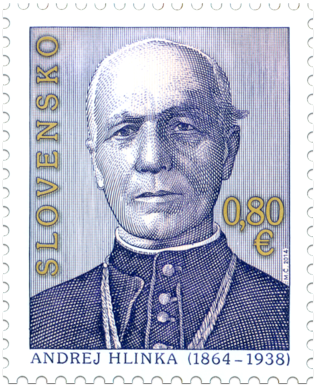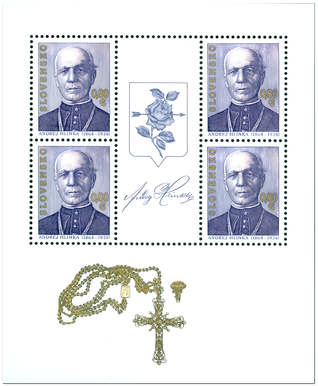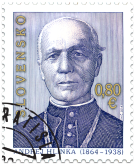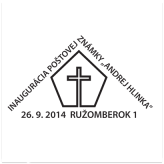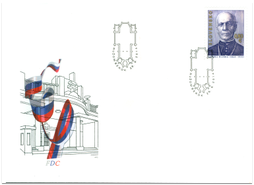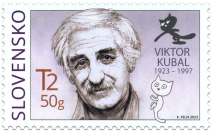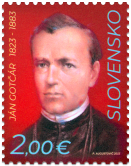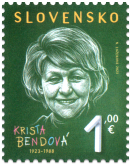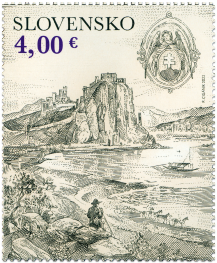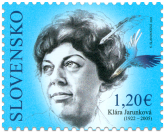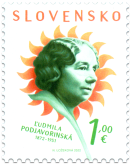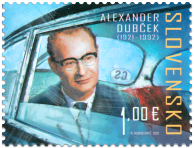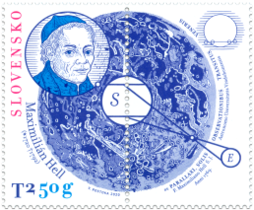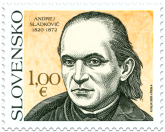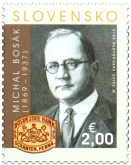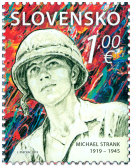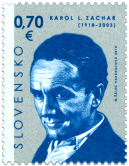570 Date of issue
26.09.2014 Face value
0.80 € Sell price
0.80 €
A Roman Catholic priest, papal pronotary, and native of a simple family of a raftsman and peasant from Černová, urban area of Ružomberok, became one of the most outstanding figures of the modern Slovak history from the end of the 19th to the 1st half of the 20th century through the way he lived his life.
Since 1892, the first stopover on his life journey, where energy of his personality, social and national awareness and organizational talent manifested to the full, was the municipality of Liptovské Sliače. Appointment of Andrej Hlinka a priest of the Ružomberok parish in 1905 and his active support of candidature of the Slovak representative Dr. Vavro Šrobár to the Hungarian Parliament in May 1906 represented a breakthrough from the perspective of his personality and further political development in Slovakia, as well. This hectic period of Hlinka’s activities at the same time overlapped with the ones in his birthplace Černová, where all his energy and zest were focused on construction of a new church and organization of activities supporting this objective. Andrej Hlinka’s political and social engagement promoting Slovak national interests aroused a negative reaction of Hungarian authorities and church. Subsequently, suspension from the office of the Ružomberok parish priest took place on May 4, 1906 and sentence to two years imprisonment followed on the grounds of a political process with Slovak national activists held in Ružomberok in November and December 1906. Andrej Hlinka served his sentence in Szeged. The tense period of judicial persecutions mingled with his successful lecture tour focusing on the Slovak issue in Czech and Moravian towns and tragic events taking place in his birthplace Černová in October 1907. Upon his return to the office in February 1910, a new phase of Hlinka’s priestly and political life commenced during which shaping of his political and social attitudes was finally completed. Apart from national issues, his political, social and religious conservatism got foregrounded.
As a spiritual and ecclesiastical authority, chairman of the Slovak People’s Party (bearing his name since 1925) and member of the parliament, he developed the concept of the Slovak nationalism and autonomism on a practical and ideological level. Hlinka was also a creator and mover of a process of political emancipation of Slovak Catholics in the opposition against the concept of unitary Czechoslovak state, and alternative Czech and Slovak political party. As far as influence on thinking of whole generations, including those exceeding the horizon of his life, is concerned, in fact, Andrej Hlinka was Slovak Charles Maurras with all consequences arising from it and accompanying the portrait of his personality up to present days.
Karol Dzuriak
© 2024 POFIS - Postal philatelic service. All rights reserved

